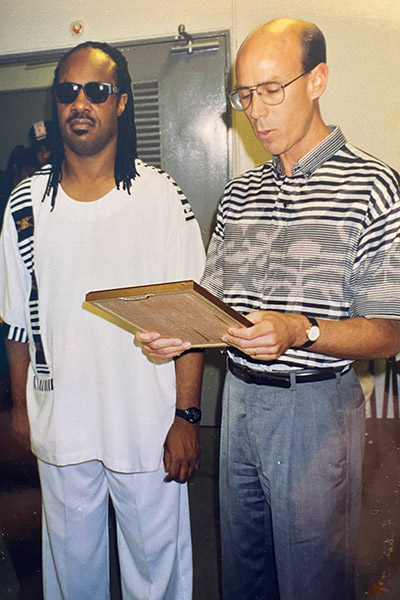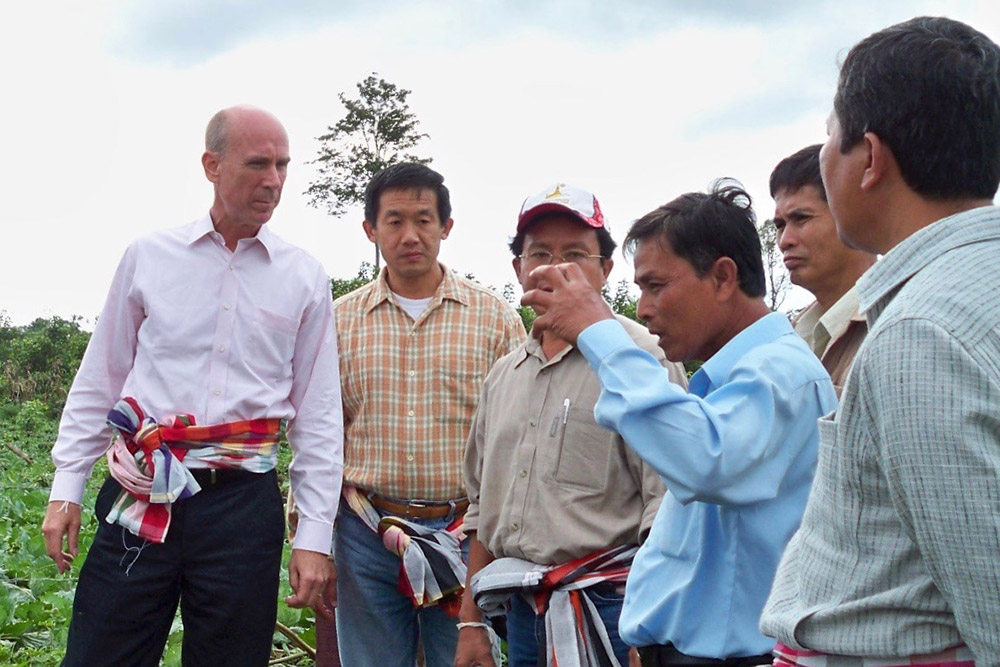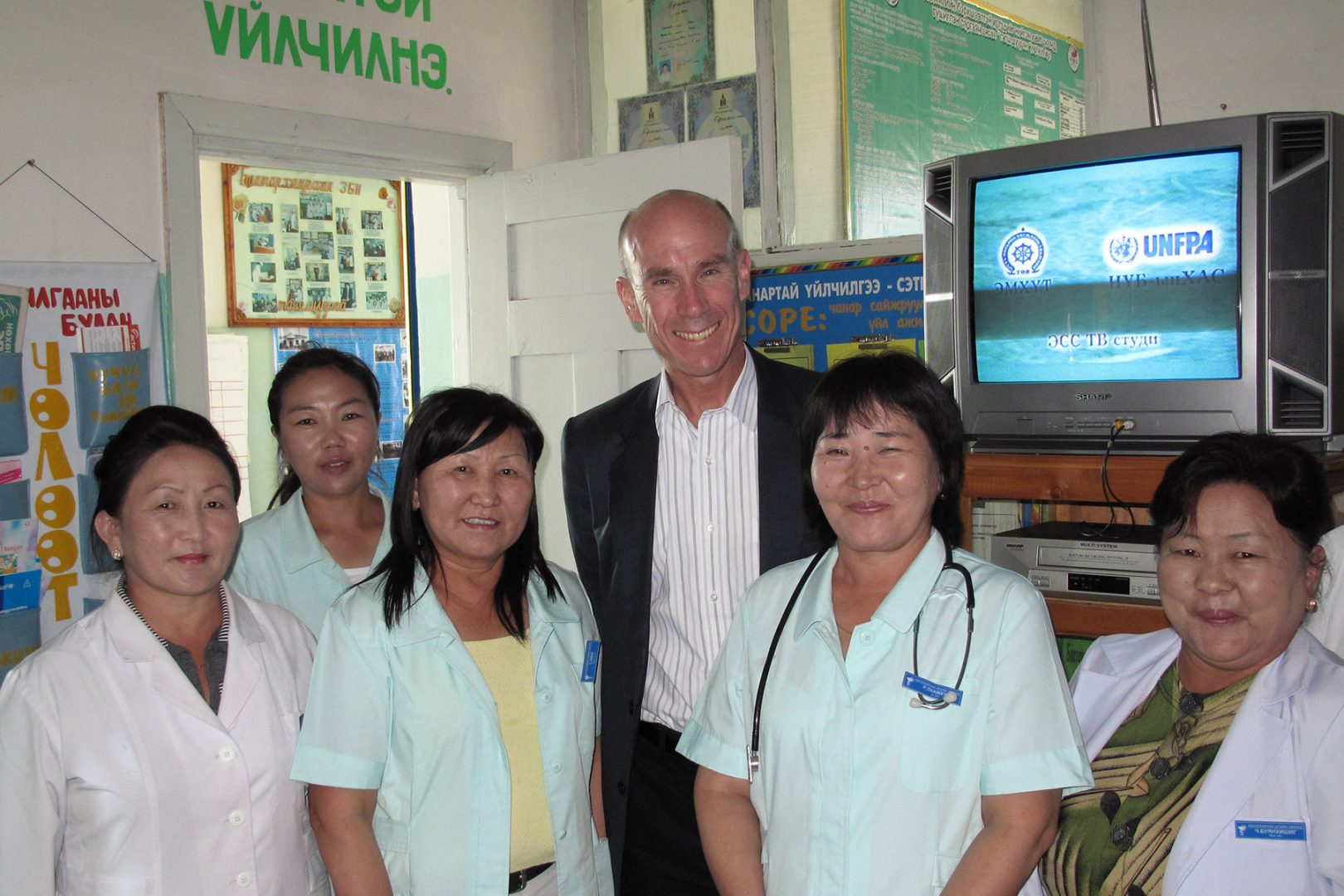Class of 1974
The last thing that Larry Greenwood ’74 expected when he first stepped onto the Florida Presbyterian College campus in the summer of 1970, as demonstrations against the war and racism raged across the country, was to emerge four years later as a conservative.
Growing up with a father who was a Presbyterian chaplain in the Navy, Larry says his time at Florida Presbyterian (now Eckerd) College as an East Asian studies major gave him a chance to explore different points of view on many issues of the day, particularly the war and social justice. Within the same year, he heard both anti-war politician George McGovern and conservative economist Milton Friedman speak in person on campus. While many of his classmates and friends joined protest marches against the war in Vietnam, Larry took a quieter approach, spending much of his time reading books by authors spanning the spectrum of political thought, including Black Panther Eldridge Cleaver, Marxist French Philosopher Jean-Paul Sartre, and “Father of Capitalism” Adam Smith.
Although in the end conservative thinking won out, Larry says the time he spent as an undergraduate learning how to listen to opposing viewpoints set the foundation for his future career as a diplomat with the U.S. State Department. He spent 30 years as a diplomat to various countries in Asia and West Africa after receiving a master’s degree from the Fletcher School at Tufts University, known for its diplomacy program.

“The thing that impressed me about Eckerd is that it could accommodate lots of different kinds of people,” Larry says. “My career was all about doing that: finding and expanding common ground between two opposing forces.”
During a career spanning the post-Vietnam era, the oil crisis, trade crises, globalization and two wars in Iraq, Larry had numerous opportunities to find that common ground, moving to a new posting every two to three years. As an economics officer, he sought to influence global economic policy to meet U.S. goals. Economics is a passion he had discovered through a one-off class at FPC/EC, where he says he appreciated the breadth of the liberal arts curriculum.
Larry credits his undergraduate experience with another formative part of his career: developing an affinity for Japan through studying abroad there and living with a host family his junior year. He spent many years of his diplomatic career there, during which he was instrumental in negotiating the opening of Japan to big-box retailers such as Toys R Us. He also used his position to advocate for growth wherever possible.
“Our basic view was the view of every administration in the postwar period, which is that a more prosperous world is going to be better for America,” he says.
During his diplomatic career, Larry also used his economics background to lead the Iraqi Economic Task Force, helping Iraq create a new economy after Saddam Hussein’s fall. Additionally, he served as the U.S. ambassador to the Asia-Pacific Economic Cooperation (APEC), a regional economic forum made up of 21 member nations. In his role with APEC, he headed a leaders’ meeting in Shanghai in 2001 that took place six weeks after September 11 and was then-President George W. Bush’s first international trip post-attack.
For everything Larry did in his government career, he says a cultural understanding and a willingness to leave any arrogance behind were essential tools.
“Diplomacy means finding common ground,” he says, noting that no country wields enough power to dictate another country’s policy. “You can’t force them. You have to persuade them that what you are asking is in their interests.”
After retiring from the State Department in 2006, Larry went on to work as a vice president for the Asian Development Bank in Manila, a multilateral development bank that lends money to Asian countries to finance infrastructure and other projects with the goal of eliminating poverty. In that role he oversaw $7 billion each year in lending to boost development in Asia. After that, he worked for MetLife Insurance in Tokyo, leading government relations for Asia. More recently, until 2019, he headed the Japan Society of Northern California, an organization that supports the U.S.-Japan relationship and provides a forum for people of Japanese background or who are interested in Japanese culture. Today, he does consulting work from his home in the San Francisco Bay area.

Larry giving Stevie Wonder an award in Singapore in 1993.
Larry says he has been saddened in recent years by the shrinking of the State Department—which he believes “makes the world a little less safe and a little less prosperous”—but he notes that with an anticipated revival of the foreign service, now is a good time for recent graduates hoping to become diplomats.

Larry Greenwood meets with farmers in Laotian Central Highlands in 2010.
Larry is proud of his time in the foreign service and feels he made a difference in the world but cautions that it isn’t just pinstriped suits and cocktail receptions.
“It’s a lot of hard work,” he says. “‘Bureaucrats abroad’ describes it better—it’s fun, but it’s not glamorous.”
Still, his career left him with an excitement for variety and a desire to learn new things that he maintains to this day. He says he hopes U.S. foreign policy will return to a position of advocacy for international peace and prosperity.
“It’s a mixed record, but I think in general over the past 70 years we’ve been successful in doing that,” he says.


